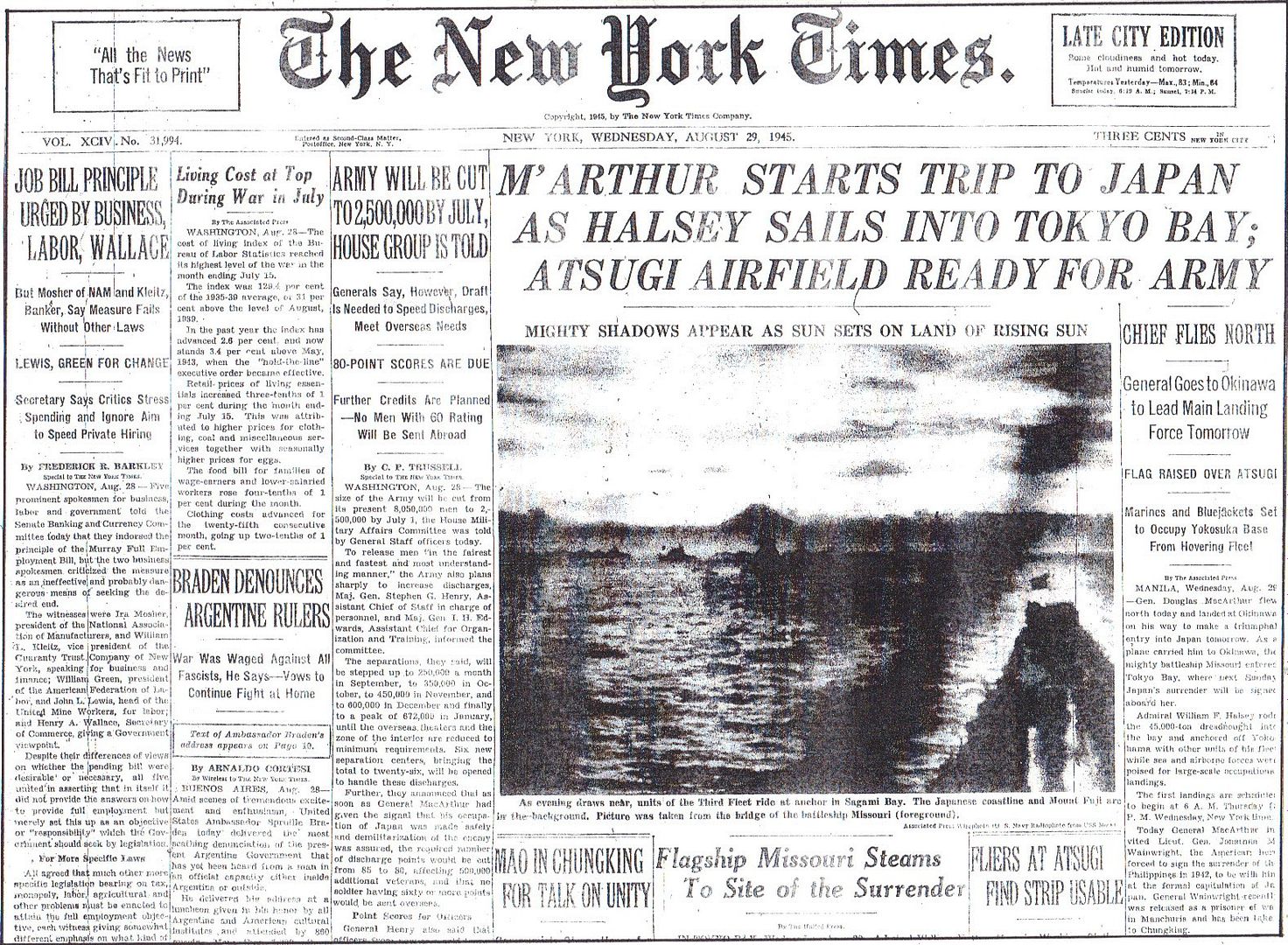
Posted on 08/29/2015 4:37:37 AM PDT by Homer_J_Simpson

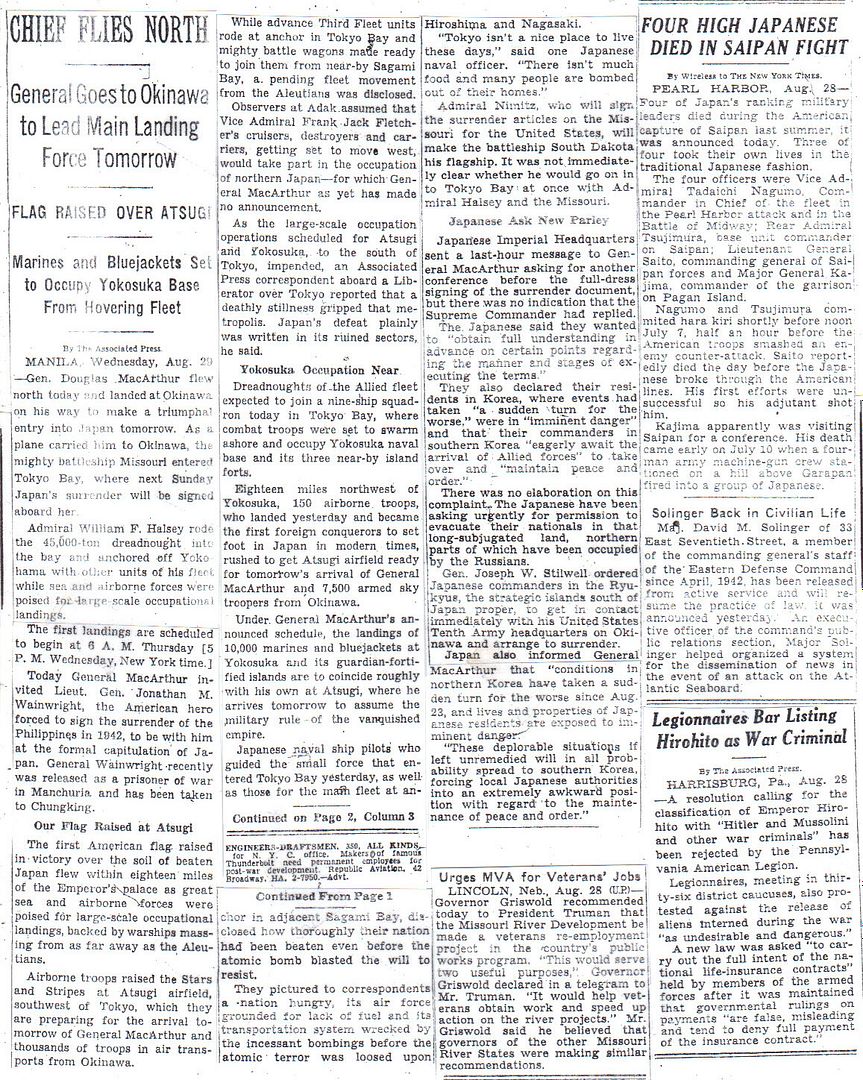
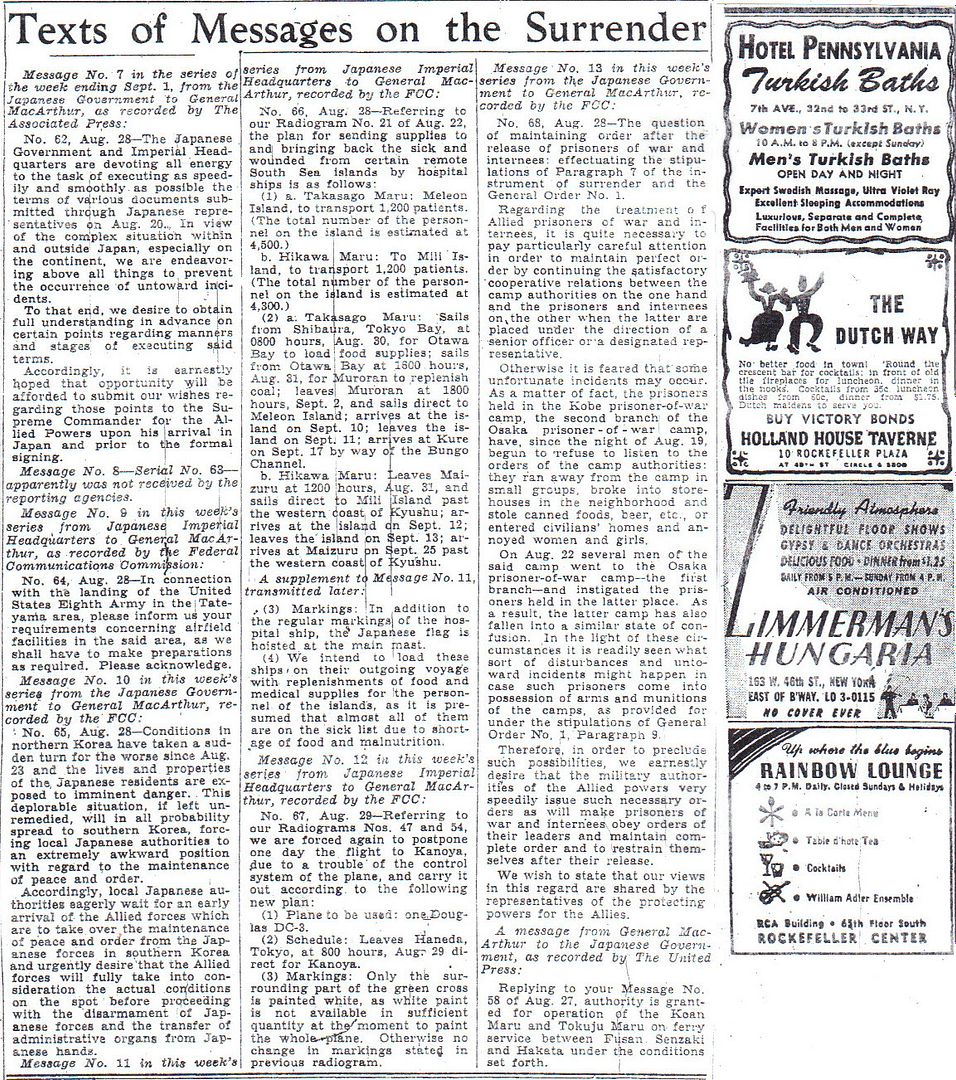
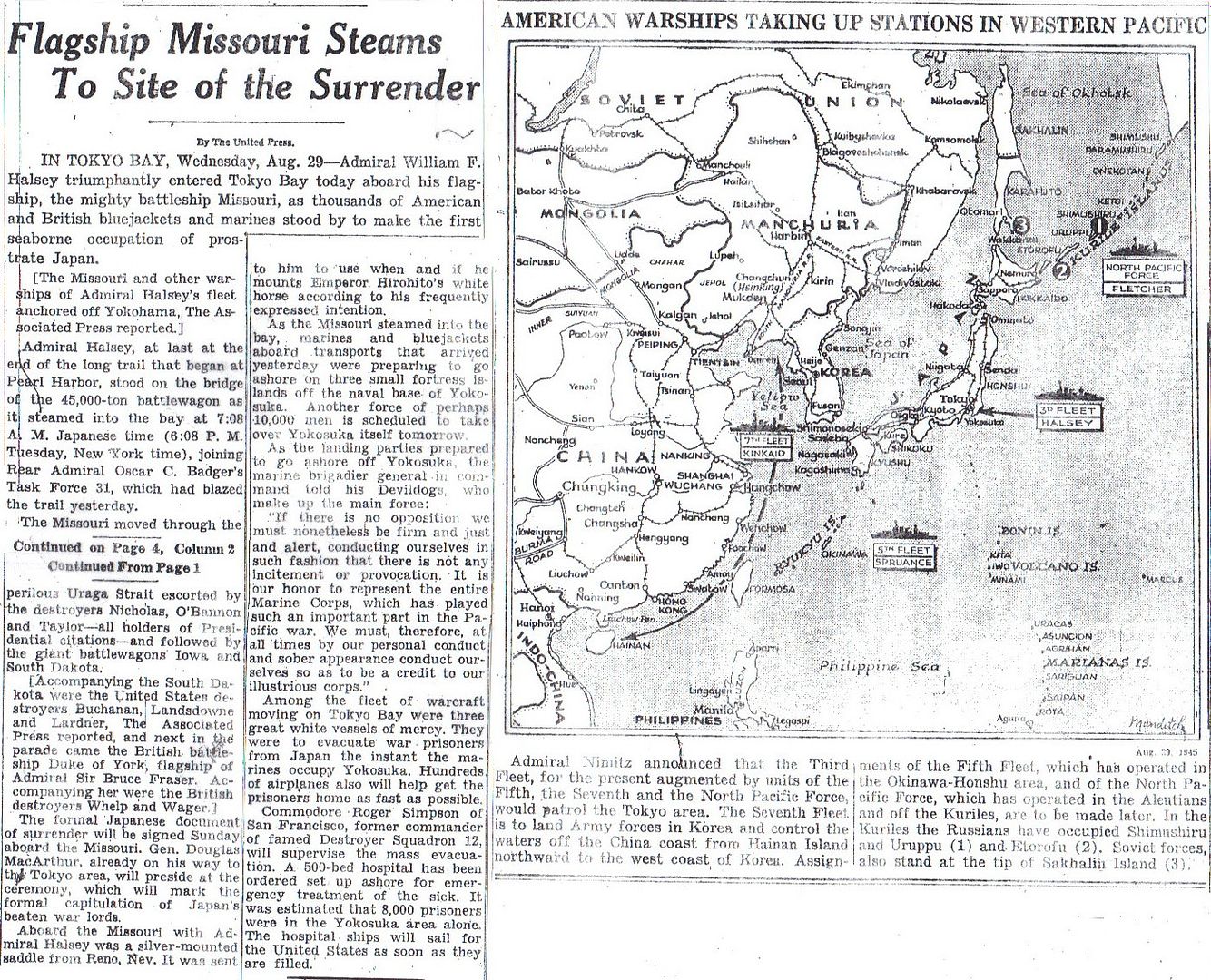
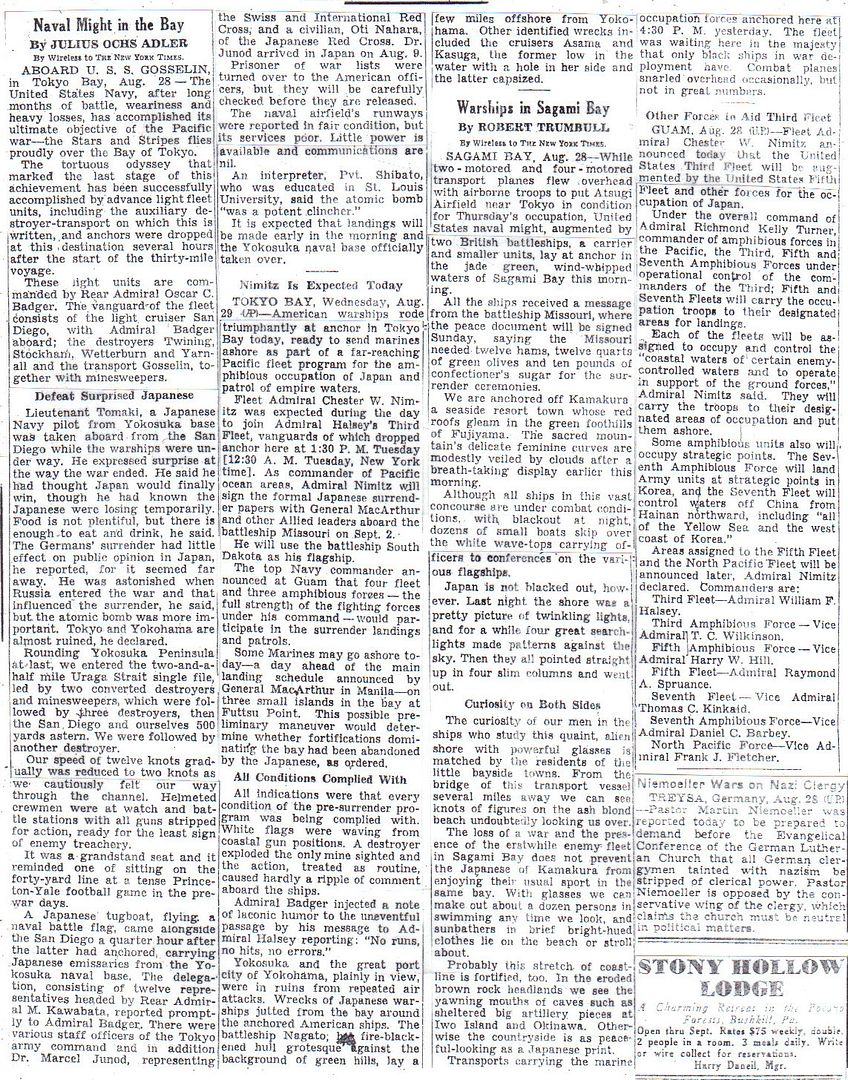
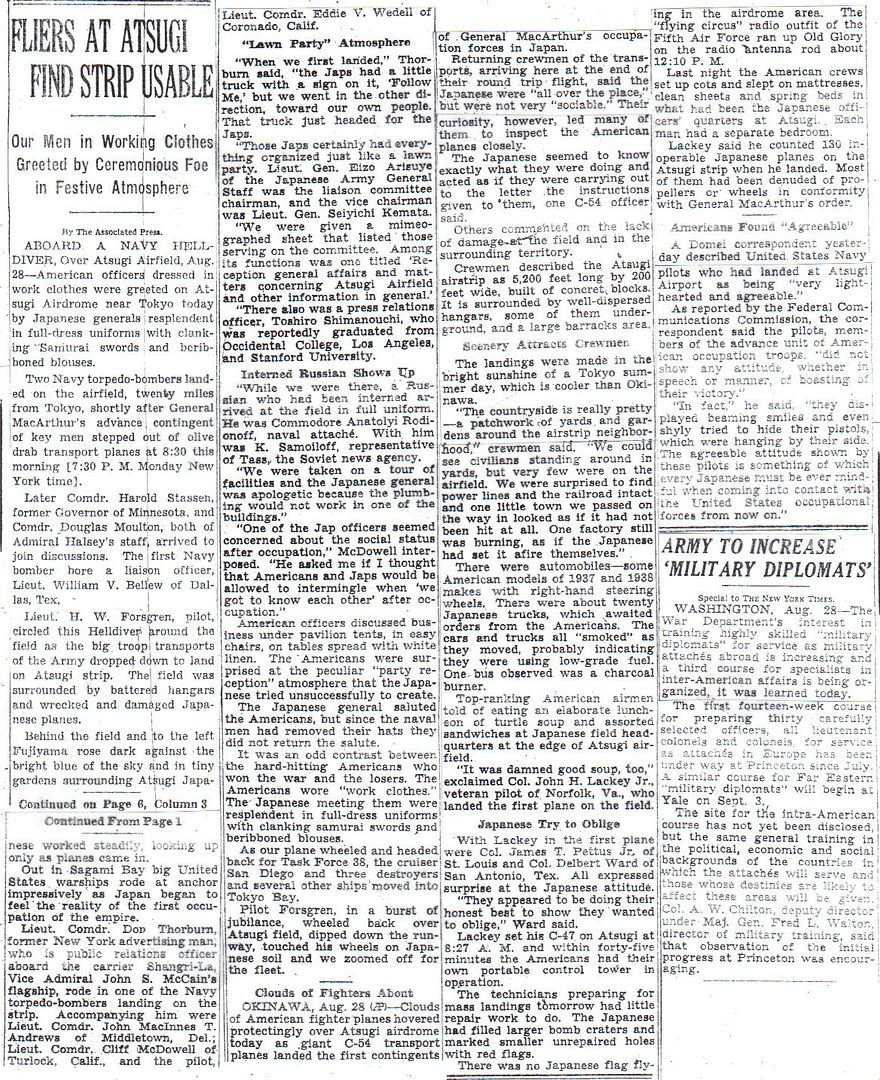
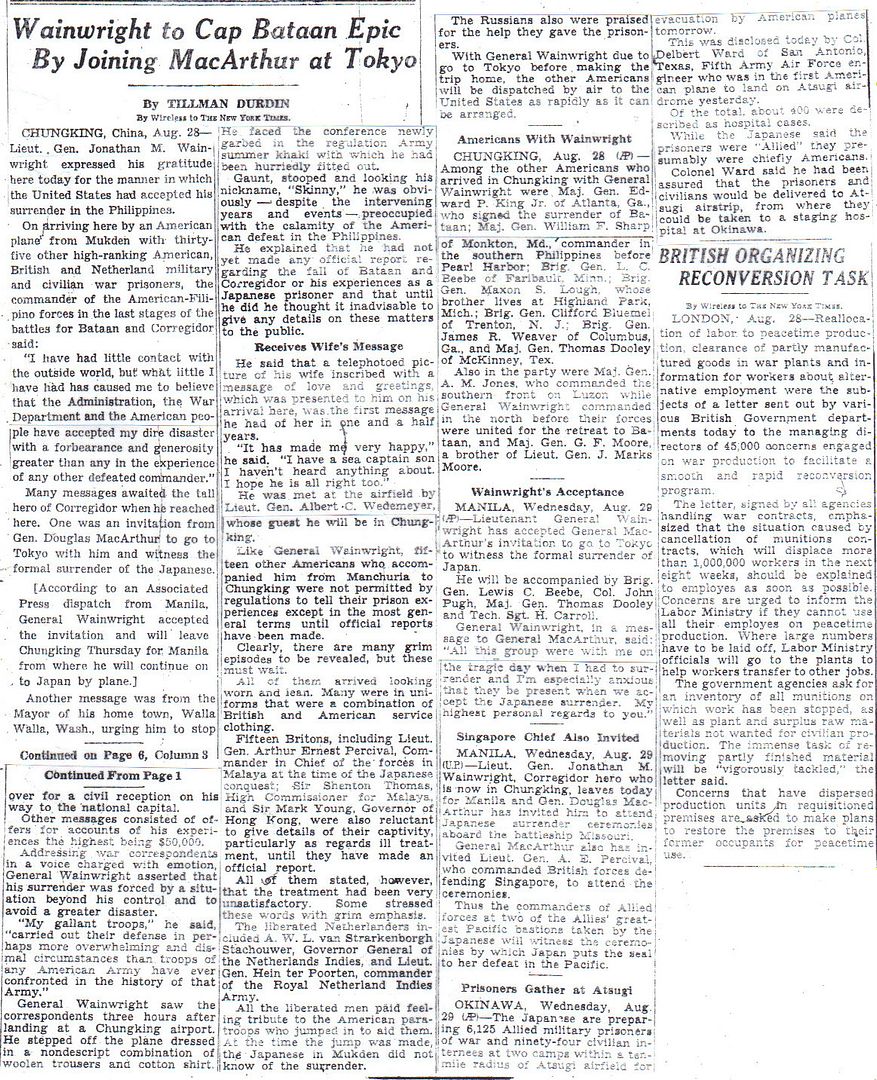
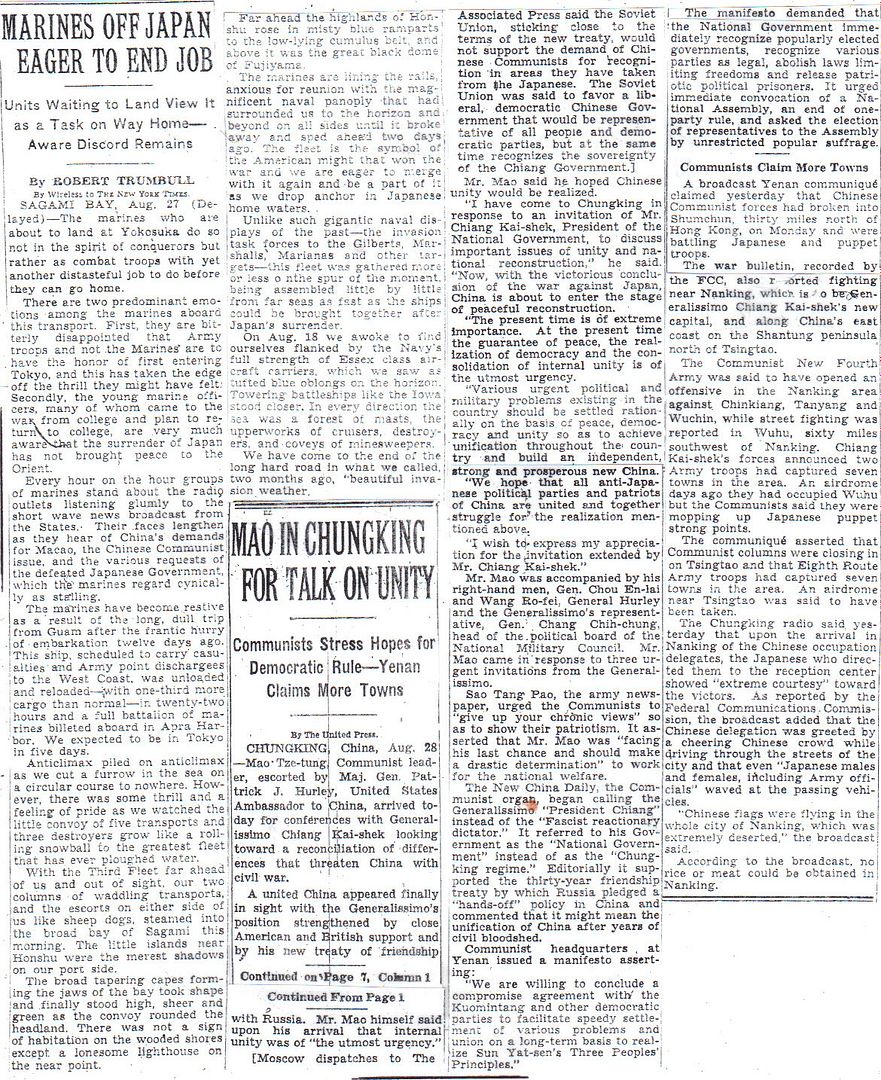
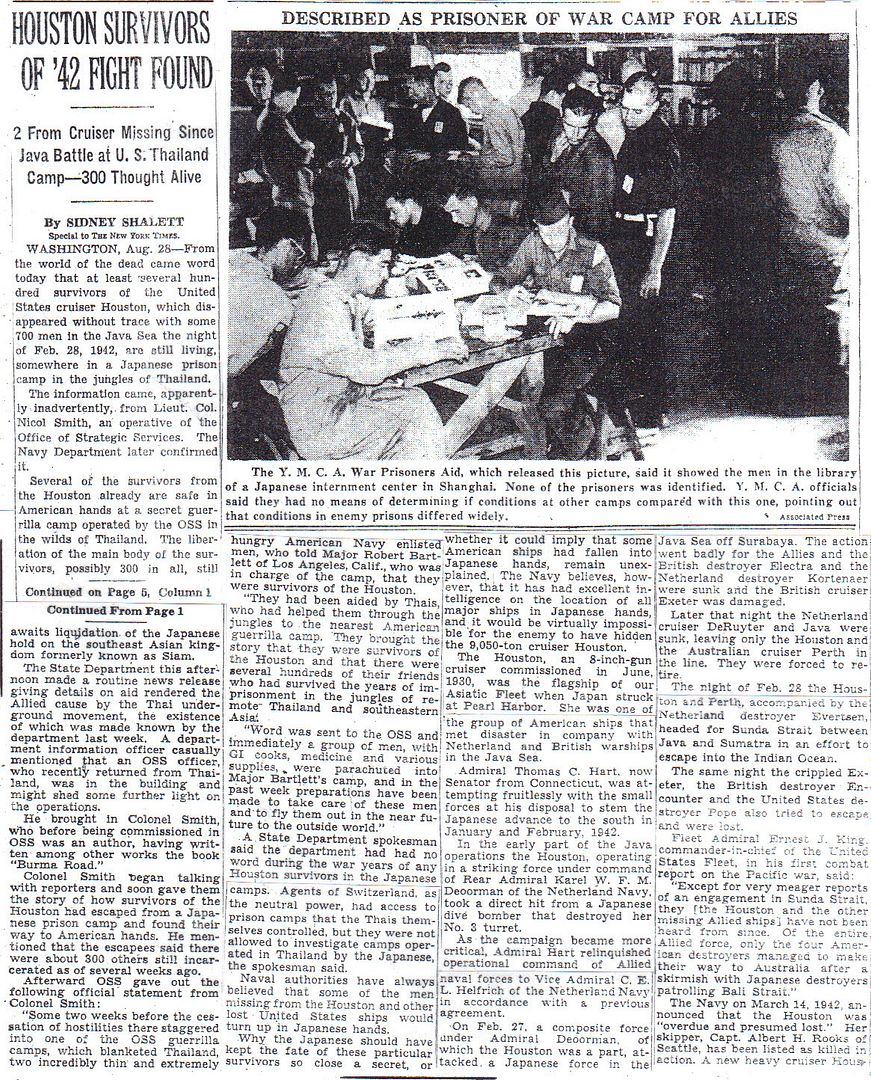
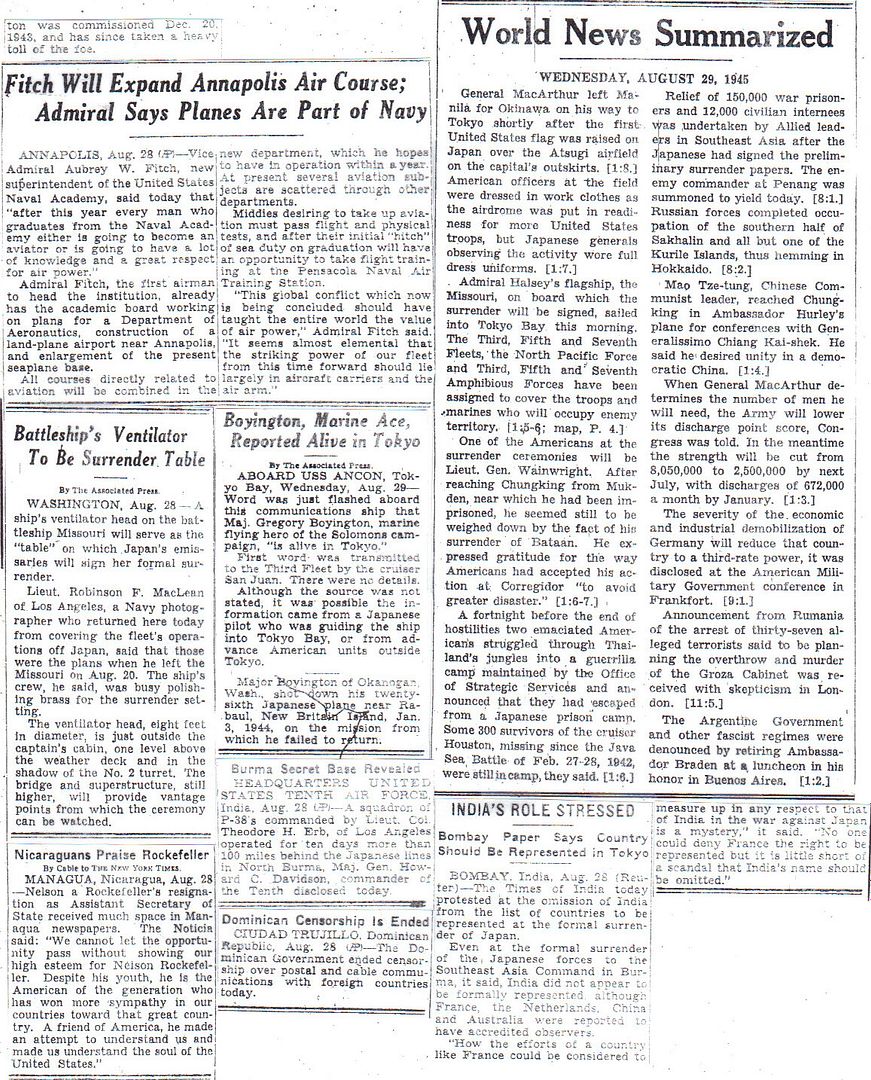
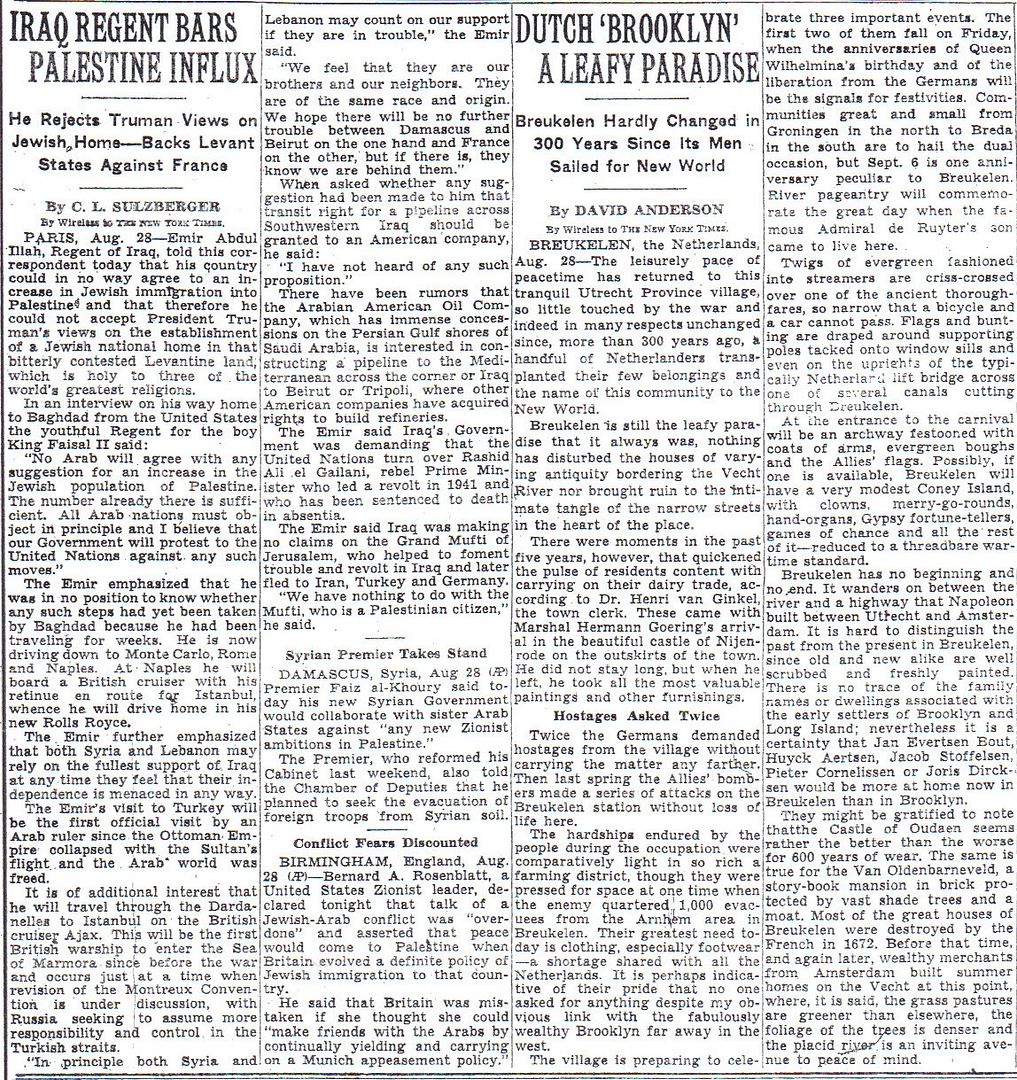
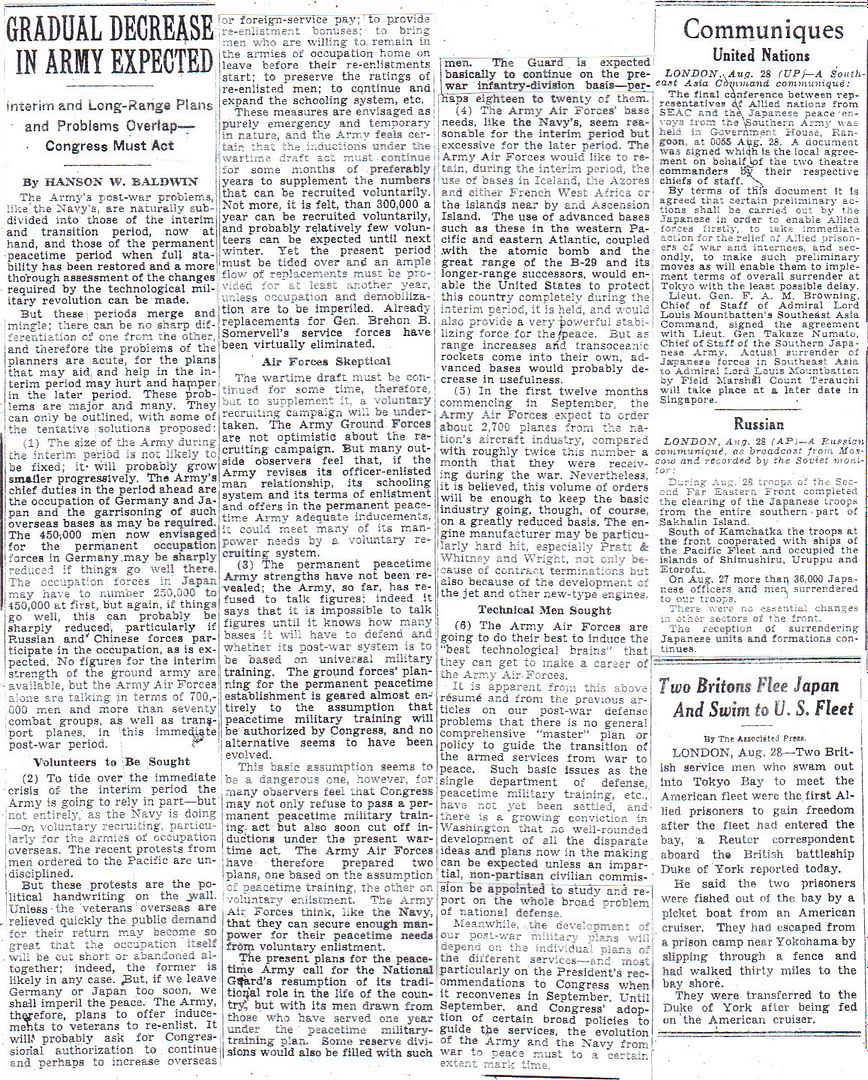
https://history.state.gov/historicaldocuments/frus1945-50Intel/d5
Foreign Relations of the United States, 1945–1950
Retrospective Volume, Emergence of the Intelligence Establishment, Document
5. Memorandum From the Director of the Federal Bureau of Investigation (Hoover) to Attorney General Clark
Washington, August 29, 1945.
Apropos of our conversation yesterday,1 I am attaching hereto a suggested draft of a letter to the Secretary of State relating to the matter of continuing the Special Intelligence Service operated by the Federal Bureau of Investigation in the Western Hemisphere.2 In addition, however, there have been certain developments in this situation in the last twenty-four hours, about which I wanted to advise you.
I have ascertained that General William Donovan has recently seen President Truman and is writing him a letter3 with reference to a proposed program for the operation of a World-wide Intelligence Service. It is reasonable to assume, I believe, that the plan which General Donovan will advance to the President will be similar to the one which he has heretofore advocated and about which I have advised you in detail.
From outside sources I have learned that Colonel Frank McCarthy, new Assistant Secretary of State, has discussed the FBI’s operation of the Western Hemisphere Intelligence Service with Secretary of State Byrnes. From the statements made by Mr. Byrnes to Colonel McCarthy, it appears obvious that the Secretary of State is not adequately or fully informed as to the nature, scope or effectiveness of the Bureau’s operations in this field.
Collaterally, I have received information that the State Department is engaged in the establishment of an intelligence organization to be operated by and entirely within the State Department’s control but on a world-wide basis. Apparently the planning of this program has reached an advanced stage.
I think, consequently, in view of these additional developments, that time is of the very essence in reaching a decision as to the future of the SIS program. As I have told you previously, I am not seeking for the Federal Bureau of Investigation the responsibility for world-wide intelligence system. I am firmly convinced, however, in light of our experiences during and even before the current world war, that the future welfare of the United States necessitates and demands the operation of an efficient, world-wide intelligence service. It is a fact, as you well know, that the SISprogram operated by the Bureau in the Western Hemisphere has been completely successful. The program has produced results which were beyond our hope and expectations when we went into this field and these results were brought about without the slightest friction in the countries where we operated. Not a single incident has arisen in which the Government of the United States was subject to any unfavorable or unfortunate publicity. I think this is a rather remarkable achievement when you consider the fact that hundreds of agents operated both undercover and as open representatives of the Government of the United States throughout the Western Hemisphere, conducting thousands of investigations resulting in the acquisition, assimilation and distribution of great quantities of intelligence information. It seems to me, therefore, that taking for granted the recognition of the need for a world-wide intelligence service, it is most logical that the system which has worked so successfully in the Western Hemisphere should be extended to a world-wide coverage. As I have advised you in previous memoranda, such a step can be accomplished without the necessity for any legislative enactment creating operating agencies or empowering them to act. The Federal Bureau of Investigation and the Military and Naval Intelligence have ample Authority under the present operating statutes to extend the Western Hemisphere coverage to a world-wide organization. This, of course, negatives the necessity for seeking through legislative channels earmarked or otherwise readily identifiable funds for the carrying on of these operations. If, on the other hand, the General Donovan plan or even the plan presently under consideration by the State Department is accepted, it will be necessary to seek Congressional authority for the program and to obtain funds which will be earmarked for and otherwise identified as being for the operation of an international espionage organization. The resulting publicity from such a step will, of course, materially curtail the effectiveness of the proposed program. Such publicity will serve to notify other nations of the program proposed to be carried out by the United States, but other nations will not similarly publicize their own intelligence operations, to the point where the United States will be in a position of advertising its intelligence organization while other nations will operate on a most secretive basis. As a matter of fact, it is well known that the British and Russian Governments, while ostensibly discontinuing their intelligence services or even denying the existence of such organizations in individual countries, are actually intensifying their coverage.
I feel very strongly that there is a need for the establishment and operation of a world-wide intelligence service. While I do not seek this responsibility for the Federal Bureau of Investigation, I do believe that upon the basis of our experience of the last five years we are well qualified to operate such a service in conjunction with parallel operations of the Military and Naval Intelligence upon the same general basis as these operations have been carried on in the Western Hemisphere. I think that time is of the essence in reaching a decision upon this matter and, consequently, I urge that you personally take the matter up with Secretary of State Byrnes as soon as possible.
Respectfully,
John Edgar Hoover
* Source: National Archives and Records Administration, RG 263, Records of the Central Intelligence Agency, Troy Papers, FBI Documents. Personal and Strictly Confidential. Drafted by Tamm.
1 No other record of this conversation has been found.
2 Not found.
3 See Document 3.
4 Printed from a copy that bears this typed signature.
Benny Goodman - Tiger Rag
Recorded in NYC, August 29, 1945
https://www.youtube.com/watch?v=ej-2aiVXXqY

Allied prisoners of war cheer their rescuers, as the US Navy arrives at the Omori prison camp on August 29, 1945. They are waving the flags of the United States, Great Britain and The Netherlands. Electrician's Mate 2nd Class James D. Landrum holds the American flag. Captured after the sinking of USS Grenadier (SS-210) in the Lem Voalan Strait, Indian Ocean, by scuttling after Japanese air attack on April 22, 1943. 61 officers and men were rescued, including Landrum. Landrum experienced torture (bamboo under fingernails), starvation (beriberi contributed to his death in 1980) and barbaric medical procedures (a Japanese doctor botched his appendectomy, causing massive bleeding and infection.) Four men from Grenadier died during their incarceration. Omori held prisoners such as Gregory Boyington, the top scoring Marine ace; submarine commander Richard "Killer" O'Kane; and B-29 bombardier/navigator Raymond "Hap" Halloran (who was on the dock with Landrum, but not pictured). All became successful authors after the war, writing about their wartime exploits. Boyington and O'Kane won the Medal of Honor.
The document titled “US Initial Post-Surrender Policy for Japan” was drafted by the State-War-Navy Coordinating Committee, and approved by that committee on August 29, 1945, and its official designation was SWNCC 150/4. It was approved by the president on September 6, and released to the media on September 22
Provisions of the document
The document set two main objectives for the occupation.
“The ultimate objectives of the United States in regard to Japan, to which policies in the initial period must conform, are:
(a) To insure that Japan will not again become a menace to the United States or to the peace and security of the world.
(b) To bring about the eventual establishment of a peaceful and responsible government which will respect the rights of other states and will support the objectives of the United States as reflected in the ideals and principles of the Charter of the United Nations.The United States desires that this government should conform as closely as may be to principles of democratic self-government but it is not the responsibility of the Allied Powers to impose upon Japan any form of government not supported by the freely expressed will of the people.”
The document also set four main policies to be pursued:
Japanese sovereignty only to include the four main Japanese islands of Honshu, Hokkaido, Kyushu, and Shikoku, while the fate of additional islands was to be determined later (this provision was taken from the Potsdam Declaration of July 26, 1945).
Japan was to be disarmed, and the military was not to play any important role in Japanese society in the future.
The Japanese society was to be encouraged to develop personal liberties, such as freedoms of religion, assembly, speech, and the press, as well as to develop democratically elected institutions.
The Japanese economy was to be developed for peaceful purposes.
The document stipulated the occupation was to last until these objectives were to be met, without specifying time limit. Practical control was vested in the Supreme Commander of the Allied Powers (SCAP), appointed by the US, a post given to General Douglas MacArthur. Other Allied governments were only given symbolic participation in policy making over Japan.
The Japanese government was retained along with the Emperor, but were subjected to SCAP.
The document established freedom of speech and freedom of religion as basic principles, and also prohibited religious and racial discrimination.
Two issues the document referred to were the issue of free elections and the demand for the dissolution of the big businesses then controlling the Japanese economy. The document did not require any policy on these issues, but called upon SCAP to encourage the Japanese government to take steps on these matters.
This non-committal attitude on free elections and corporate control derived from the view of Japanese society as over conservative and not very susceptible to change.,
https://en.wikipedia.org/wiki/US_Initial_Post-Surrender_Policy_for_Japan
A Guide to Research on the Allied Occupation of Japan
By Matthew R. Augustine
http://www.columbia.edu/~hds2/BIB95/02occupation_augustine.htm

The USS Collett was the first American ship to sail into Tokyo Bay just before the Japanese signed the surrender on Sept. 2, 1945 ending World War II.
“We sailed around the harbor past the enemy fleet and back out to the entrance. Adm. Halsey was waiting aboard the battle ship Missouri for us to complete the inspection tour that took us four or five hours,” Gassera said. “Then the Missouri led the fleet into the harbor and dropped anchor. We weren’t in the harbor for the surrender ceremony.”
http://donmooreswartales.com/2010/09/29/nick-gassera/
“We were the first American ship to sail into Tokyo Bay to make sure Japan was really surrendering. We were concerned about more attacks from Kamikazes because they didn’t want to surrender,” Gassera explained.
“Our captain told us he had been advised the Japanese would drape white sheets over the barrels of their shore batteries located on the hills at the entrance to Tokyo Bay to indicate they wouldn’t fire on us,” he said. “We weren’t to shoot at them if they were covered, but if they weren’t we were to fire on the single uncovered cannon. All the Japanese guns were covered,” he said.
http://donmooreswartales.com/2010/07/12/ed-kalanta/
He steered the Battleship Missouri into Tokyo Bay
The Battleship USS Missouri, flagship of Fleet Adm. William F. “Bull” Halsey’s Task Force 58, steamed into Tokyo Bay 150 ships-strong on the morning of Aug. 29, 1945.
Quartermaster 3rd Class Ed Kalanta of Port Charlotte, Fla., was at the wheel of the 45,000 ton leviathan.
At the ripe old age of 20, Kalanta was an old hand at steering the 887-foot battleship. He began doing it almost a year earlier, before she was commissioned at the Brooklyn Navy Yard in September 1944.
Texan recalls time 70 years ago as POW during WWII [liberated August 29, 1945]
http://www.ledger-enquirer.com/entertainment/article32742111.html
During the mid-afternoon of Aug. 29, U.S. Navy ships headed toward Camp Omori. Fighter planes circled overhead as men jumped up and down on the dock and cheered. Homemade flags made of old rags waved.
“We were wild with joy,” Hanley wrote.
During the recent interview at his apartment, Hanley asked, “Have you seen the movie ‘Unbroken?’ I lived that.”

Victory flight over Tokyo Bay.
Surrender at Tokyo Bay
It was the morning of August 29 ... the Macomb raced through the gray waters of Sagami Wan at flank speed. Soon she reached the USS Ellyson, flagship of the DMS squadron and fell into column astern of her, with the USS Hambleton bringing up the rear.
These three DMSs rigged their sweep gear and proceeded up the channel, slowly and cautiously. Along these coasts were placed an intensive coast defense system of large caliber rifles—the Mac and the other DMSs were fully aware of the possibility that the Japs could seize upon this moment for a last treacherous post-war blow.
Also aware of this were the top navy commanders riding the two big ships who followed the Mac into Tokyo Bay, the Iowa and the Missouri, proud super-wagons, and four war-weary destroyers were the ships selected by Admiral Halsey to enter the bay on that history-making morning.
The minutes passed and nothing happened as the group reached the point where the channel turns abruptly, with Tokyo Bay only a few hundred yards beyond. There was Yokosuka on the left and further down, the buildings of the Yokohama waterfront dominated the horizon.
The group began to break formation, each ship proceeding to assigned anchorages. Before dropping the hook, the Mac steamed up to Yokohama to have a look at the once-busy port. Suddenly a startled lookout yelled, “Take a look at the sign on the tall building dead ahead!” Everyone raised his glasses and read the amazing message. It was “THREE CHEERS, U.S. ARMY U.S. NAVY” painted in white letters 10 feet high near the top of a prominent waterfront warehouse. Eager U.S. POWs had somehow gotten the paint and decorated their prison barracks with the welcoming inscription.
After a good look around, the Mac anchored off Yokosuka and began to absorb the strange new experience—the realization that peace had actually come.
In brief, the Mac entered Sagami Wan, just outside Tokyo Bay, on the 27th, swept the channel ahead of the Missouri and Iowa on the 29th, and at last, on August 29, 1945, at 1945, dropped anchor in Tokyo Bay. Mac remained at anchor until September 4th, only 1000 yards away from the formal surrender aboard the Missouri.
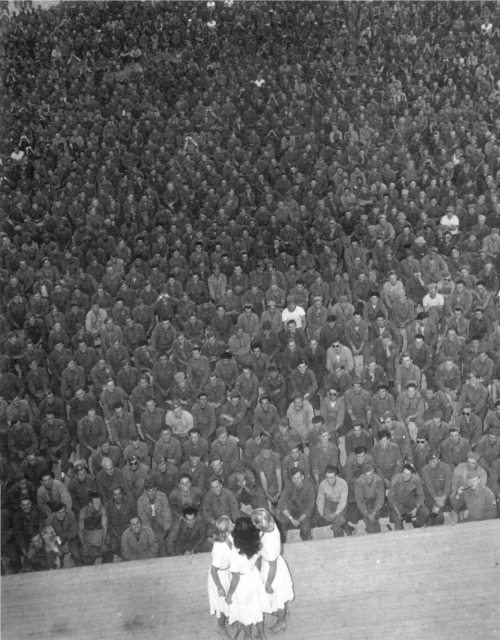
August 29th, 1945
Marseilles, France
Copacabana All Girl Review
Disclaimer: Opinions posted on Free Republic are those of the individual posters and do not necessarily represent the opinion of Free Republic or its management. All materials posted herein are protected by copyright law and the exemption for fair use of copyrighted works.